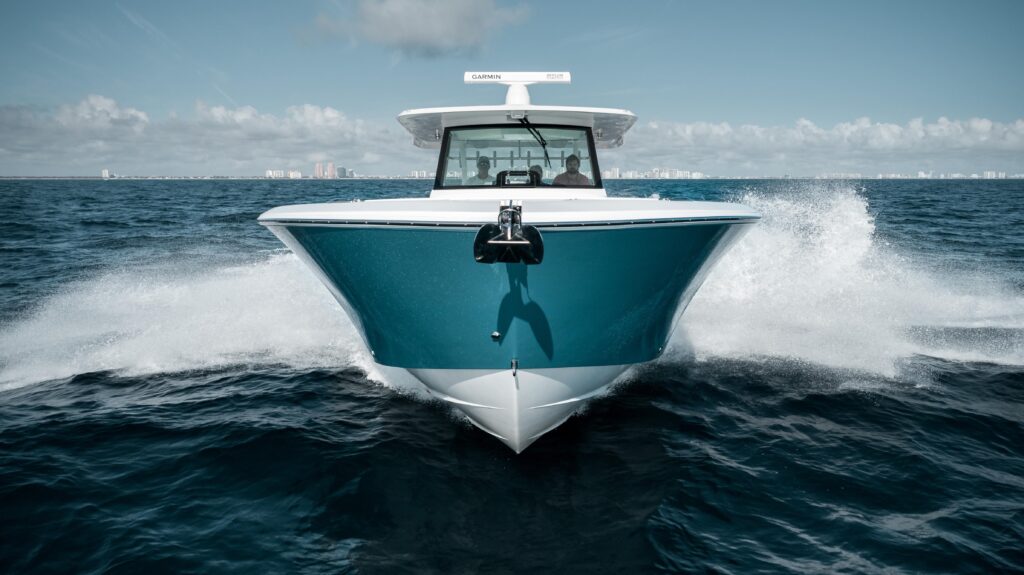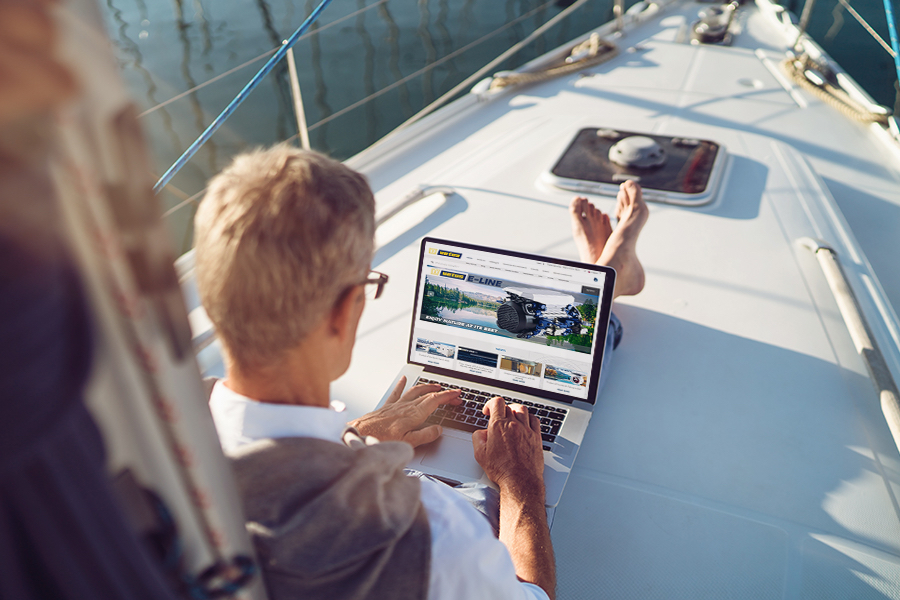In Focus: Vetus says innovation key to boater ease

Vetus has been busily changing its outlook over the past decade. While marketing director Sander Gesink readily admits the company was once seen as a warehouse stocking all manner of marine goods, it’s now a hub of innovation which has taken onboard the challenges of the electric propulsion era and connected products.
“We are truly a global innovation company whereas many other marine equipment companies have a buy and sell strategy. Most of our products are designed inhouse by our dedicated team of engineers. Our philosophy is to offer our customers innovation through design,” says Gesink (pictured).
The outlook is to further invest in R&D but he is reluctant to be specific about the details.

“Most innovation projects are still classified unfortunately. But generally, the focus in the marine market is: sustainability (cleaner fuel, electric/hybrid propulsion), connectivity (all information at hand on a single display), intuitive controls (like joysticks) and comfort (AC, gyros, enough electric power onboard).”
The sustainable factor has been underpinned with Vetus’ early adoption of 48Volt technology across its range. Gesink says that has now reached critical mass.
“There has been a lot of to-and-fro about higher voltages for boats, especially in the last decade as electric propulsion has come to the fore. As with all areas of debate, the market ultimately decides and more and more items of 48 volt marine equipment are becoming available by the day, indicating that the movement towards a 48 volt ‘standard’ has now reached a critical mass. At Vetus we are pleased to see and be part of this. The adoption of any greater level of standardisation in the market means that manufacturers such as Vetus can have the confidence to develop more and better products, more rapidly to drive the decarbonisation process, which, at the end of the day, is what we are all about.”
In order to get behind 48 volts as a future ‘standard’ voltage for electric marine propulsion, Vetus systems are largely plug and play.
“A boat owner repowering a diesel-driven boat needs to find it not much harder to opt for electrification as they would replacing with yet another diesel,” says Vetus R&D director Arthur Roeling. “Products such as our E-Line and E-POD drives, both available in 48 volt configuration, carry their controllers in the casing and are direct drive, thus taking away much of the guesswork from a marine electrification project. Somebody building or refitting a yacht with electrical propulsion wants the peace of mind of a safe voltage and does not need the burden of bespoke equipment and extensive paperwork that allows a less safe voltage to be run.”
Vetus also recently gained approval to use hydrotreated vegetable oil (HVO) on its D and M-Line series of marine diesel engines. The approval and certification follow an intense period of bench and field tests. HVO, also known as renewable diesel or green diesel, is a diesel-like fuel that can be produced without fossil resources. This lower-carbon fuel is a more sustainable alternative to diesel and contains low sulphur and aromatics, says Vetus.
Gesink is pragmatic about the breadth of Vetus’ offering. “If you wish to power a planing, high performance 12m offshore RIB, making it capable of travelling 300 miles at 40 knots in open water without refuelling or recharging, electrification is definitely not viable. Vetus E–Drive motors suit a range of boats, all suitable for electrification, covering sail, power, and narrow boats. So depending on the type of boat and use, we promote either diesel or electric. It’s up to the customer to decide.”
He says Vetus is carefully looking at the age brackets of boaters and what they need on the water. Although he admits he hasn’t got any statistical data, experience suggests that single handed sailing is growing.

“Couples who are retired typically like to sail without the help of a crew. Setting up your boat so that you must leave the helm as little as possible is important. Thinks like auto pilot, raising the sails by a single button and releasing the anchor from the helm are all options in modern yachts. Also joystick control gives them the extra confidence when manoeuvring their boat in tight spaces.
“The younger generation, who have everything on their phone, is used to working with online tools and tablets. At the helm station information should be at hand on displays. Since younger people have less boating experience, intuitive controls (like joystick) are appreciated. For example, to dock your boat easily.”
That ease of boating is being brought about by a variety of partnerships. In January this year, Vetus partnered with Yamaha Marine to incorporate a bow thruster into the latter’s Helm Master EX boat control system. This was to offer customers fully integrated, joystick controlled boat handling and since Jan 2022, the company’s been collaborating with Mercury Marine, enabling the integration of its Bow Pro thrusters with Mercury Joystick Piloting for Outboards.
Vetus has its headquarters in the Netherlands, with direct representation in 17 other countries. It was founded in 1964, and now designs and manufactures complete onboard boat systems—including engines, generators, bow thrusters and control panels—for recreational and small commercial vessels.










